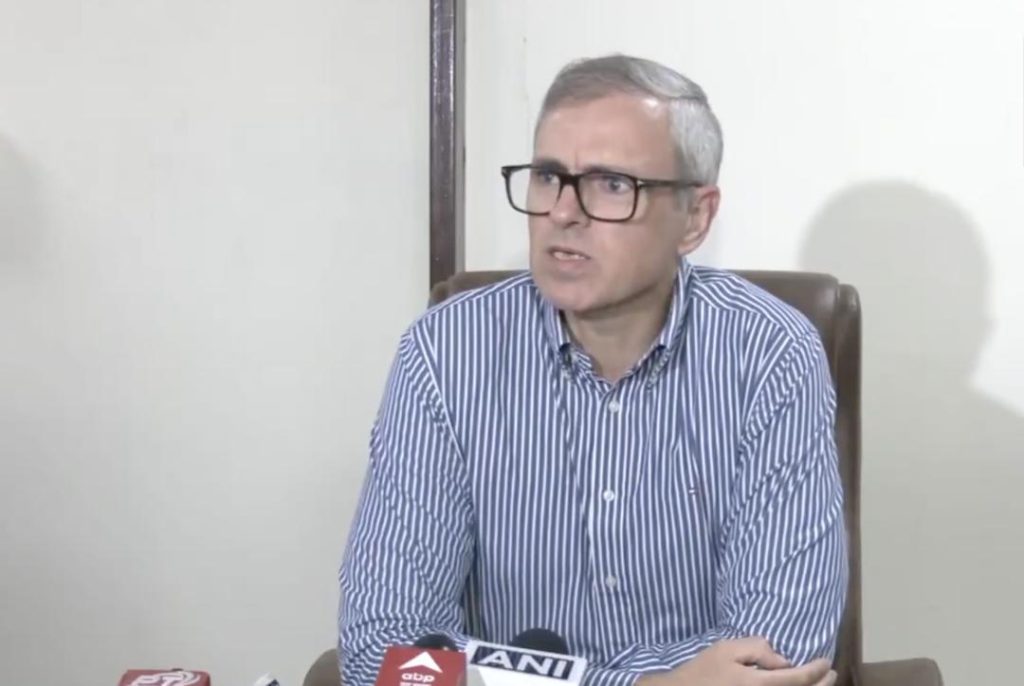
Why should I send water to Punjab?: J&K CM on canal proposal
The debate around the proposed 113 km-long canal, aimed at redirecting surplus water from the western rivers of the Indus system in Jammu and Kashmir to Punjab, Haryana, and Rajasthan, has taken a new turn. Jammu and Kashmir Chief Minister Omar Abdullah has expressed his reservations over the project, questioning the logic behind diverting water from his state to other regions. In a recent statement, the CM emphasized that Punjab already has a significant share of the water allocation under the Indus Waters Treaty and asked why J&K should be expected to bear the burden of providing more water to the neighboring state.
The proposed canal, which is expected to cost around Rs 30,000 crore, is intended to provide a reliable source of water to the drought-prone states of Punjab, Haryana, and Rajasthan. The project has been touted as a solution to the water scarcity woes of these regions, which are already facing significant challenges in meeting their water requirements. However, Omar Abdullah’s comments have raised questions about the fairness and feasibility of the project.
Under the Indus Waters Treaty, Punjab is allocated a significant share of the water from the western rivers, which include the Chenab, Jhelum, and Ravi. The treaty, signed in 1960, specifies the water-sharing arrangements between India and Pakistan, with Punjab receiving around 80% of the total water allocation from these rivers. Jammu and Kashmir, on the other hand, receives around 20% of the water, with the majority of it being used for irrigation purposes.
Omar Abdullah’s question, “Why should I send water to Punjab?”, highlights the long-standing demands of Jammu and Kashmir for a more equitable share of the water resources. The state has been facing significant water scarcity issues, particularly in the Kashmir Valley, which has been affected by the drought-like conditions in recent years. The CM’s remarks have also sparked concerns about the potential environmental and social impacts of the proposed canal project on Jammu and Kashmir.
One of the primary concerns is the potential disruption to the delicate ecosystem of the western rivers. The rivers play a crucial role in supporting the local biodiversity and providing livelihoods to thousands of people dependent on fishing and other related activities. The construction of the canal could alter the natural flow of the rivers, potentially leading to the decline of the aquatic ecosystem and affecting the livelihoods of local communities.
Another issue is the potential social impact of the project on Jammu and Kashmir. The state has already been facing significant challenges in terms of infrastructure development, education, and healthcare. The diversion of water resources to other regions could exacerbate these issues, potentially leading to increased migration and social unrest.
In addition to these concerns, Omar Abdullah’s remarks have also raised questions about the transparency and consultation process surrounding the project. The CM has emphasized that the project was introduced without adequate consultation with the stakeholders in Jammu and Kashmir, including local communities, farmers, and environmental organizations. The lack of transparency and consultation has led to widespread resentment and mistrust among the people of Jammu and Kashmir.
The proposed canal project is not without its benefits, however. The project could potentially provide a reliable source of water to the drought-prone regions of Punjab, Haryana, and Rajasthan, helping to alleviate the water scarcity issues faced by these states. The project could also create jobs and stimulate economic growth in the regions affected.
In conclusion, the proposed 113 km-long canal project has sparked a heated debate in Jammu and Kashmir, with Chief Minister Omar Abdullah questioning the logic behind diverting water from his state to other regions. The project raises significant concerns about the fairness and feasibility of diverting water resources, particularly in light of the Indus Waters Treaty. The potential environmental and social impacts of the project on Jammu and Kashmir need to be carefully assessed, and adequate consultation and transparency need to be ensured in the decision-making process.






